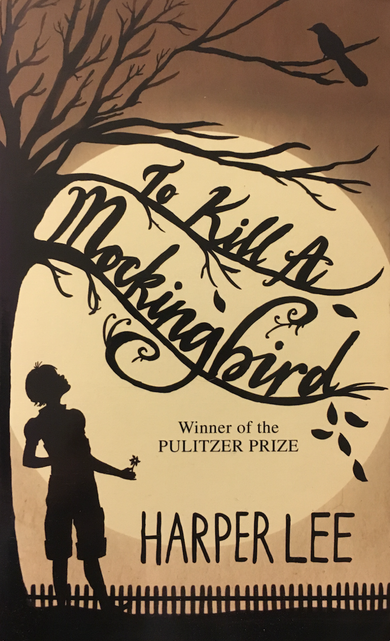In 1960, Harper Lee introduced readers to the serious issues of rape and racial inequality in her classic American novel, To Kill a Mockingbird. Writing from the point of view of Scout Finch, a young child that is unaware of the extreme racial prejudice during this time period, allowed Lee to bring these concerning matters to light in a way that made them more digestible for readers. In Maycomb, Alabama, Scout and her brother Jem learn the importance of respect and equality as their father Atticus goes through the legal process of attempting to absolve Tom Robinson, an innocent black man accused of raping a white girl, from blame. Throughout this experience, Scout and Jem realize the significance of their father’s support for racial equality in a town where such equality was not tolerated.
Soon after its publication, the novel was recognized for the Pulitzer Prize for Fiction and was turned into an Oscar-winning film in 1962. Over time, it has sold more than 40 million copies worldwide. Despite positive responses to the novel, Lee distanced herself from the overwhelming publicity in 1964 in order to protect her privacy. Years later, after Lee had been suffering from dementia, her draft Go Set a Watchman was released on July 14, 2015. This draft was written before To Kill a Mockingbird in 1957 from the point of view of Scout as an adult, 20 years in the future. However, this is an extremely controversial topic, for we do not know if Lee’s intent was to have this draft published. In May of 2015, Lee’s sister and caregiver Alice Lee died. Lawyer Tonja Carter then took the position of Lee’s sister. Because of Lee’s worsening medical condition, the decision to make this draft available to the public was not her own, but Carter’s. The timing of the release of Go Set a Watchman is questionable, especially after Lee said she would never publish another novel after To Kill a Mockingbird and the recent death of Lee’s sister/protector. The reviews of Go Set a Watchman are rightfully disappointing. Some fans of To Kill a Mockingbird have decided to boycott Go Set a Watchman instead of reading it out of respect for what they believed to be Lee’s wishes.
Sophomores Jonathan Teitelbaum and Rebecca Joskow were asked to express their opinions about To Kill a Mockingbird.
“It was really interesting how it was written through the perspective of a child because a lot of books written in that time period were mainly written from the point of view of adults. And it was interesting to see what life in a small southern town was like during that time period,” said Teitelbaum.
Teitelbaum enjoyed reading about Scout because she is curious and not afraid to question authority.
“It is important to read this book because it shows how flawed the justice system was back then and how much it has improved,” said Teitelbaum.
“I like the book because of the unique characters. The way that the author develops each of the characters’ qualities—Scout’s questioning, Jem’s wise demeanor, and Atticus’ ideal answers for everything—really brings them alive,” said Joskow.
Joskow’s favorite character is Atticus Finch. She is impressed by his honorable disposition and his desire to expose Scout and Jem to all aspects of the world—both good and bad. Atticus helps Scout and Jem learn about ethical inequality when he decided to let them watch Tom Robinson’s trial in the courtroom instead of sheltering them from the unfair reality of racial injustice.
In regard to Go Set a Watchman, Joskow thinks that the release of the book without Lee’s consent is suspicious. She feels as if it might be interpreted incorrectly by readers.
“Harper Lee has such a powerful way with words that invested me in the characters and their personalities. In the court scene, Atticus’ closing remarks were so well written, it gave me chills,” said Joskow.
We were all saddened to hear about the death of Harper Lee on February 19, 2015. Lee passed away at the age of 89 in her hometown, Monroeville, Alabama. Despite the debate over this newly published draft, we will always remember the empowering story of To Kill a Mockingbird that taught us to stand up for what we believe in, even if we are standing alone.





































